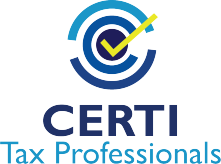 Are tips subject to CPP and EI. Employees in the hospitality business, such as restaurants, hair salons, coffee shops, hotels… usually receive tips in one form or another. Do they or their employers need to pay CPP and/or EI on the tips income. This depends on the types of tips.
Are tips subject to CPP and EI. Employees in the hospitality business, such as restaurants, hair salons, coffee shops, hotels… usually receive tips in one form or another. Do they or their employers need to pay CPP and/or EI on the tips income. This depends on the types of tips.
Tips can be controlled or direct.
Controlled tips are gratuities that are controlled by the employer. Since they are controlled by the employer, the employer is considered to have paid these amounts to the employee.
- The employer adds a mandatory service charge to a client’s bill to cover tips;
- The employer adds a percentage to a client’s bill to cover tips;
- Tips allocated to employees using a tip sharing formula determined by the employer;
- Tips that an employer includes in his business income, later expenses and redistributes to employees in the form of pay;
- Tips that the employees are required to turn over to their employer and are later distributed to the employees;
- Cash tips that are deposited in the employer’s bank account and become the property of (or even commingled with the property of) the employer and subsequently paid out to the employees.
Direct tips are gratuities that are paid directly by the client to the employee and that are not subject to any of the forms of control by the employer. Examples of direct tips are:
- A client leaves money on the table at the end of the meal and the server keeps the whole amount;
- A client gives a tip directly to a bellhop, door person, car attendant, porter; etc.
- Tips pooled and/or shared among employees in a manner determined by the employees (as opposed to the employer);
- When paying the bill by credit card, a client includes an amount for a tip on the credit card and the employer returns the tip amount in cash to the employee;
- When paying the bill by debit card, a client includes an amount for a tip and the employer returns the tip amount in cash to the employee;
CRA provides several examples for both types of tips, direct and controlled. In summary:
Controlled tips form part of the employee’s total remuneration and are subject to CPP contributions and EI premiums being deducted at source, provided that this person is employed in pensionable and/or insurable employment. Direct tips are not subject to CPP contributions and/or EI premiums. However, an employee can elect to make CPP contributions on tip amounts earned in the course of pensionable employment where the tip income is found not to be subject to CPP contributions at source. The individual will complete a form CPT20 to elect to pay the CPP contributions.
